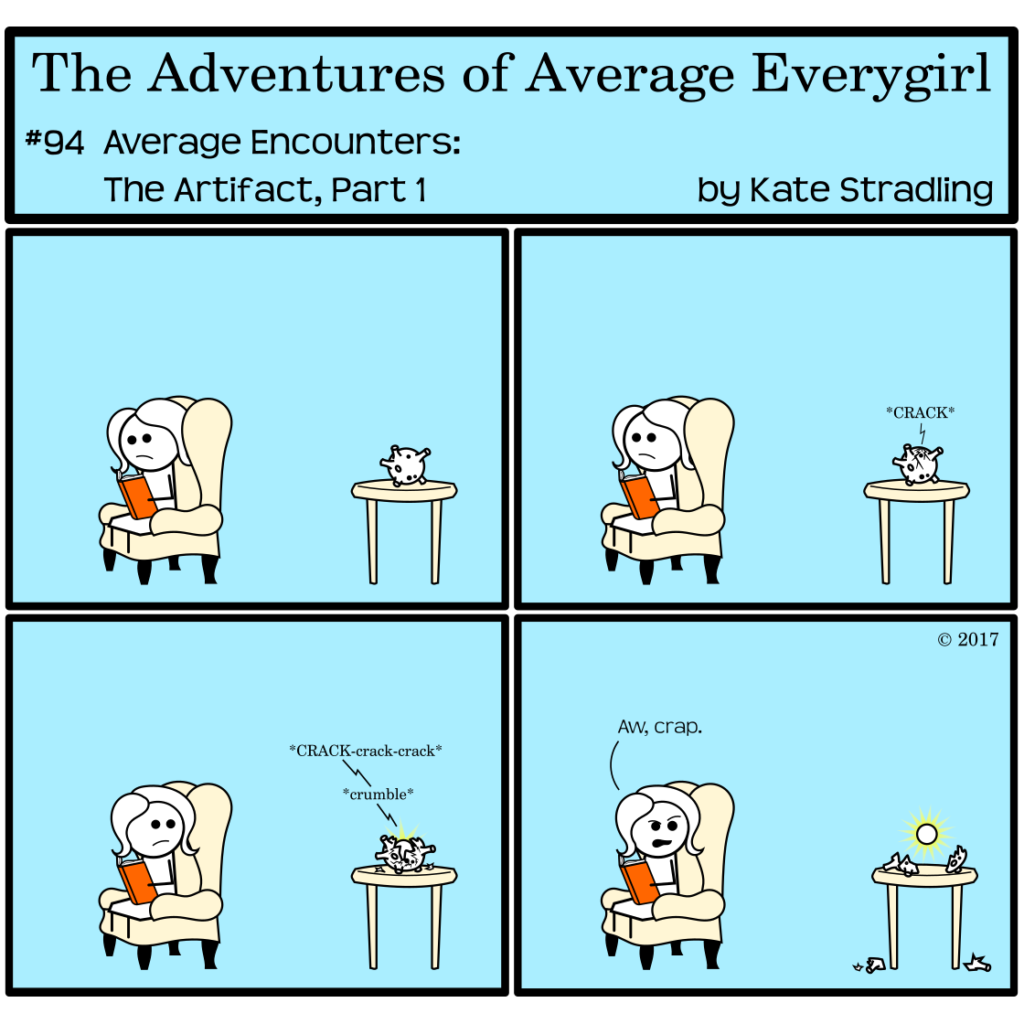
We’ve all been there. One minute you’re minding your own business, and the next, a dangerous and coveted plot device tumbles into your hands. And then it’s off to Mt. Doom or Alderaan or the Marshes of Morva to figure out just what to do with the blasted thing.
Much to your chagrin.
The Inherent Joys of Plot Devices
But everyone loves plot devices, and for good reason. Without them, literature would consist entirely of people remarking on their surroundings while they aimlessly wander the countryside.
Also known as the Collected Works of William Wordsworth.
(Sorry, not sorry.)
Plot devices come in many shapes and sizes. They trigger the story arc and drive it forward. The best of them hold the key to solving everything. They are the bread and butter of every writer worth his snuff.
(Yes, I’m giving you the side-eye, Wordsworth. You know what you did.)
But, of course, not all plot devices are created equal.
The Dreaded MacGuffin
Although Alfred Hitchcock gets credit for the term (spelled “MacGuffin” or “McGuffin,” depending on your preference), the concept of the MacGuffin existed before he put that term to use. It refers to an object that everybody in the story wants but that has no special attribute beyond that.
Classic examples abound.
- The Golden Fleece? MacGuffin
- Helen of Troy? MacGuffin
- The Holy Grail? MacGuffin
All of these items have the same draw for those who seek them: “There’s this thing, see? And everyone’s after it, but we’re going to get it.”
*cue prematurely triumphant laughter*
MacGuffins typically cause more trouble than they’re worth, and they have no real benefits beyond some vague blessing or prestige that comes with ownership. Thus their narrative value lies only in how well they can drive an interesting plot.
(I’d give first place in this category to Helen of Troy, but the Apple of Discord is the instigating MacGuffin there. I mean, really? “Look, I need that piece of gold produce. Everyone knows that imitation-fruit trophies are the highest authority in determining one’s worth and value.”)
As with any trope, the application governs its merit. “MacGuffin” is more of a fun term than a derogatory one. Some MacGuffins are superfluous, but others are downright essential.
The Cellini Venus in How to Steal a Million (1966), for example, does nothing and is literally worth nothing, but it makes for a superbly entertaining plot.
Heist and mystery story lines frequently rely on MacGuffins to spur their heroes. You don’t expect a box of jewels or a priceless Van Gogh to have properties beyond “expensive” and “coveted.”
Quests and epics, on the other hand, can wade into forbidden territory. Long story short, if you introduce an artifact into your fantasy adventure, it better do something more than look pretty.
Further MacGuffin Reading
For more examples of MacGuffins, TvTropes.org provides an extensive list, including dozens of trope variations. Do you have a favorite? Leave it in the comments!
The Ring of the Nibelung, all time favourite. Because everyone wants it, and it’s supposedly All of That, but somehow never actually does anything for anyone except get ’em killed.
BUT WE LOVES IT PRECIOUS, WE LOVES IT.
Also a huge favourite b/c Anna Russell her teeth into the opera, and it’s WONDERFUL: https://youtu.be/eN5dAQLYYrs
Haha, yes! Classic!
Oh, Kate–you worked in both the origins of much conversation (“I wandered lonely as a cloud”) AND an Audrey Hepburn movie into this one! I adore you! (Just a side note: there is a Phineas and Ferb episode with a doll named “Mary McGuffin” as its plot device. It ties in nicely here. 🙂 )
You know me so well. I couldn’t resist the Wordsworth jab. 🙂
I haven’t seen the Phineas and Ferb episode in question, but I’m not surprised. That show had some seriously smart writing.
I have nothing intelligent at all to contribute, I just love all your books and have been waiting almost a year to find a non lame way to say that. News flash! There is no cool way for a stranger on the internet to tell another stranger that they adore their writings. But, I want to say it anyway. W R Gingells too (the fact that you two seem to be friends is so stinking cool to me). I actually re-read (for like the eighth time) both Ruses books this weekend and Spindle yesterday. Love them. Can’t wait to see whats next 🙂
Thank you so much. You just made my day. I’m so grateful (for the millionth time) that the Internet gives us the means to connect with people we wouldn’t otherwise know. But yeah, reaching out to strangers is still really difficult. Props to you for bravery. 🙂 (And for the record, positive feedback from a complete stranger is just about the coolest thing ever for an author to receive. In my experience, anyway.)
It’s my pleasure to rub shoulders, figuratively, with WRG. She left a comment on one of my posts a couple years ago (I think?) and the friendship has grown from there. She is one of the nicest souls ever, and her writing is a joy (as you already know).
Again, thanks for your kind words. I appreciate them more than I can express.
(By the timestamp on your comment, I’m two days late in replying. Sorry about the delay. Mea culpa.)
I’m just hanging onto Kate’s coat-tails in the hopes that some of her talent will rub off on me 😀
Totally agree about the Ruses books, btw: I’ve re-read ’em so many times, and now I want to re-read The Legendary Inge, but someone has swiped my copy! The rudeness!
(Also, glad to hear you enjoyed Spindle 🙂 )
Comments are closed.